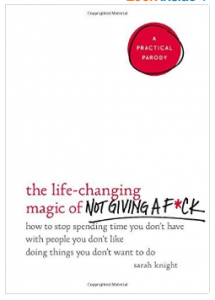There is something so beautiful about waking up knowing there are Good Leftovers in the fridge. Today I have leftover Broccoli Cheddar Soup to look forward to, from this Taste of Home recipe:
********
Cheesy Broccoli Soup in a Bread Bowl Recipe
Ingredients
- 1/4 cup butter, cubed
- 1/2 medium onion, chopped
- 2 garlic cloves, minced
- 4 cups fresh broccoli florets (about 8 ounces)
- 1 large carrot, finely chopped
- 3 cups chicken stock
- 2 cups half-and-half cream
- 2 bay leaves
- 1/4 teaspoon ground nutmeg
- 1/4 cup cornstarch
- 1/4 cup cold water or additional chicken stock
- 2-1/2 cups (10 ounces) shredded cheddar cheese
- 1/2 teaspoon salt
- 1/4 teaspoon pepper
- 6 bread bowls
Directions
- 1. In a 6-qt. stockpot, heat butter over medium heat. Add onion and garlic; cook and stir 6-8 minutes or until onion is tender. Stir in broccoli, carrot, stock, cream, bay leaves and nutmeg; bring to a boil. Simmer, uncovered, 10-12 minutes or until tender.
- 2. In a small bowl, mix cornstarch and cold water until smooth; stir into soup. Bring to a boil, stirring occasionally; cook and stir 1-2 minutes or until thickened. Remove bay leaves; stir in cheese until melted. Stir in salt and pepper.
- 3. For bread bowls, cut top off each loaf; carefully hollow out bottom of each, leaving a 1/4-in. shell (discard removed bread or save for another use). Serve soup in bread bowls. Yield: 6 servings.
********
(That whole part between sets of asterisks-lines is from TasteofHome.com.)
Isn’t it so annoying when people are like, “This was great! But I made it with this instead of that, and I left out the this, and I added that, and I used half again as much this,” and after awhile you’re like, “Why didn’t you just find a different recipe?”/”How can I possibly tell from your review if THIS recipe is any good or not?” Ahem. But anyway, I didn’t do bread bowls, I just put rolls on the side. And I used extra-sharp cheddar cheese instead of cheddar. And I used an entire 1-pound/5-cup bag of frozen broccoli florets (I’m not sure why the recipe estimate of ounces-to-cups is different than the estimate on the bag of frozen broccoli). And I used a big handful of pre-shredded carrot, because I happened to have that. And I used about half the amount of onion called for, because I am wary of onion. And I did happen to have a 6-qt stockpot, but there was a LOT of extra room in that pot.
Well! Anyway! This soup claims to be similar to Panera’s, and it’s been awhile since I’ve had Panera’s, but I would say this soup is at least within range of it. Also, it pleased me by being surprisingly easy to make. I’ve tried other soups where I work for an hour and a half just fussing with all the prep, and this one I started at 5:00 and it was ready by 5:40, and some of that was time I spent playing Candy Crush on my phone while supervising the simmer. I guess it would have taken longer if I’d cut up fresh broccoli florets and finely diced a carrot. And hadn’t used frozen pre-diced onion. And hadn’t had Paul mince the garlic and Rob shred the cheese. WHATEVER. But I can do all those things NEXT time TOO!
Oh! Also. The nutmeg looked weird to me in this recipe but, despite what you’d think after the paragraph about all the changes I made, I have a GENERAL preference for making the recipe as-written the first time I make it, so I went ahead and nutmegged it up—and there was nothing weird about it. I didn’t think, “Whoa, nutmeg” or whatever. In fact, it is possible my jar of nutmeg has gone off.






















